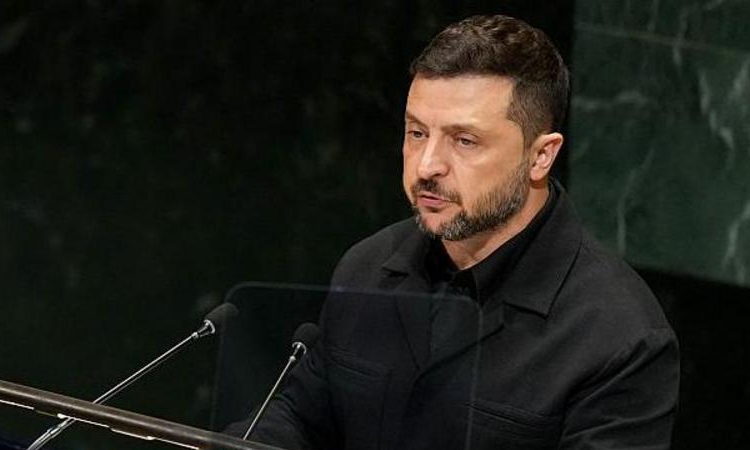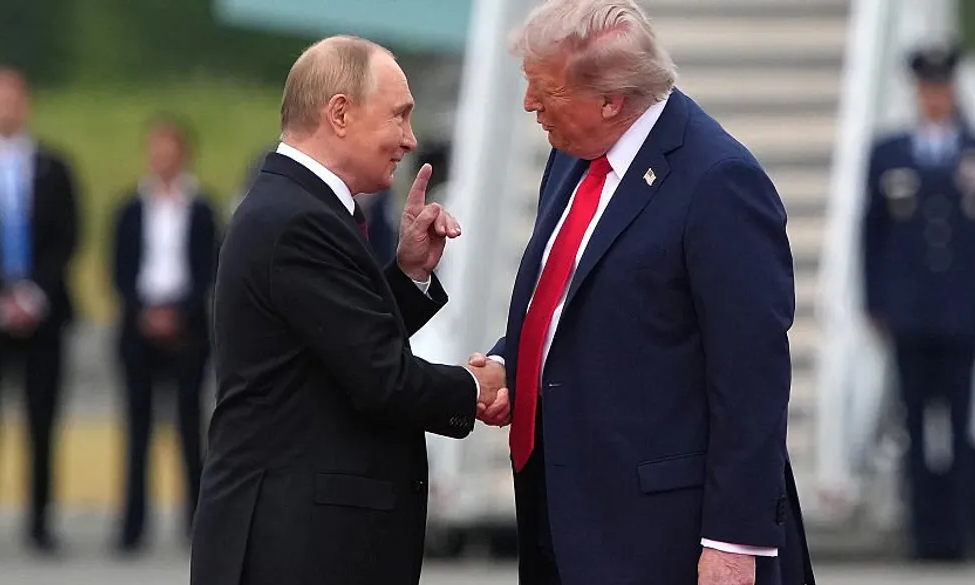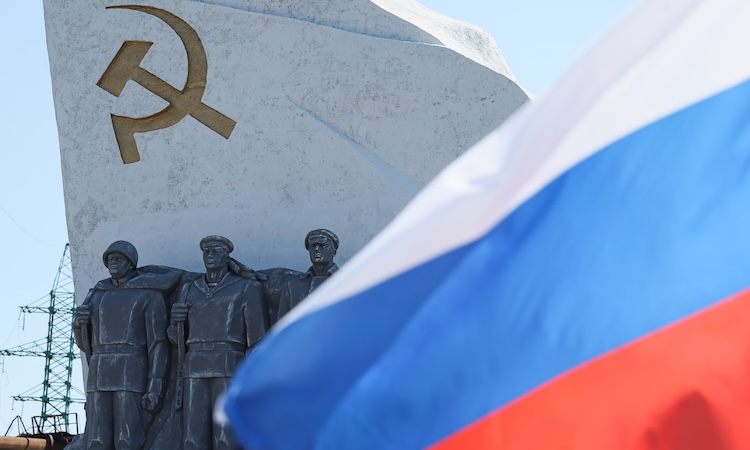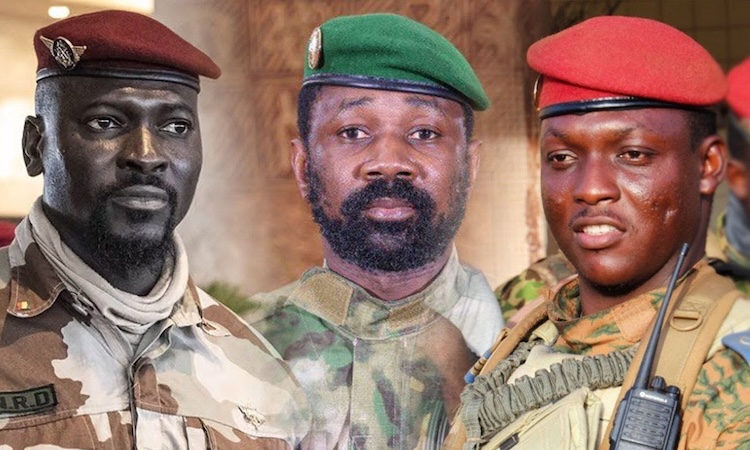After months of gnashing of teeth and screaming by the imperialist press over mere rumours of DPRK military involvement in the ongoing conflict in Ukraine, the governments of the DRPK and Russia have calmly confirmed that indeed, north Korean troops have been operating in the Kursk region in Russia.
The first stories breaking the ‘news’ that the two countries that had signed an agreement to defend each other had started, well, defending each other appeared towards the end of December of last year, with claims that Ukrainian forces had captured and injured “a north Korean soldier”. (North Korean soldier captured in Ukraine dies, reports say by Koh Ewe, BBC News online, 27 December 2024)
Kiev and Seoul (read imperialist compradors) suddenly claimed that 10,000 Korean troops had been fighting in the Kursk region of Russia, with the US regime going further and claiming that 1,000 DPRK troops had been killed in action. Quite how the capture of a single injured ‘north Korean’ soldier led to these figures was never demonstrated.
Some evidence was offered in the wake of these claims in the form of passports found. Eagle-eyed analysts quickly spotted that the passports were not written in Hangeul, used in Korea, but Cyrillic (a lettering system common to many countries comprising the former USSR) and that the passports stated that the holders were Tuvan, an ethnic group living mostly in central Russia.
In response, counterclaims were made that these were forged documents aimed at hiding the DPRK’s involvement in the conflict. While this is certainly possible, it seems to be rather convoluted given that the DPRK and Russia had openly signed an agreement that allows both to parties to render military aid to one other.
Moreover, given the above claims of 10,000 troops in the field and 1,000 troops killed in action, why would the imperialist intelligence agencies need to rely on such flimsy and questionable evidence?
All this was soon rendered redundant, however, with the recognition from both Moscow and Pyongyang of the heroic contribution made by DPRK soldiers in defence of Russia.
Russia and People’s Korea
Those who have even a passing understanding of the history of Korea and the close ties between Soviet Russia and the DPRK could hardly be surprised at yet another example of fraternal support between the peoples of these two countries.
Not only were the founders of People’s Korea students of the Soviet experience, but the Soviet Union gave material supported to Korea’s national-liberation struggle. During the Korean people’s struggle against the fascist Japanese occupiers of Korea and Manchuria, and later again during the Fatherland Liberation War (readers may know this simply as the ‘Korean war’), the Soviet Union and China provided materiel, manpower and expertise.
In the wake of WW2, once the Korean people had booted out the Japanese occupiers after decades of struggle, the Soviet Union sent many experts and much machinery and goods to the northern part of Korea, to help the people consolidate their victory. Soviet experts were present as comrades to support and advise as the Korean people started organising their own affairs to suit the people of the Korean peninsula, rather than the rapacious wants of this or that imperialist power.
Gains were rapidly made.
The same could not be said of the southern half of Korea. When US forces came to bring Korea into their own ‘sphere of interest’ they came armed to the teeth and would brook no question of the Korean people exercising their own will and ordering life to meet the Korean people’s needs.
People’s councils that had sprung up all over the peninsula were banned, and many participants in these early soviets were imprisoned and killed. The abhorrent practice of creating camps to force Korean women into prostitution, which had begun under Japanese occupation, was continued by the American occupation.
What gains had been made by the people were put to the torch.
When the time came for the Soviet and US presence in Korea to be ended, the Soviets left as agreed, while the Americans reordered life in the south to better serve their needs; that of access to an exploitable and cheap workforce, a market for its own goods and a base from which to combat Chinese and Korean communism.
Alongside maintaining their unwanted military presence, Washington’s forces rehabilitated Japanese colonisers and Koreans who had served the Japanese occupiers, installing them as a police force to put down rebellions, reverse land reforms and break up democratic groupings with no force spared.
Many massacres were committed against the Korean people. And this all before war proper broke out.
The focus of this article isn’t on the horrific slaughter inflicted on the Korean people and their allies, chief among them the Chinese communists. Nor is its focus on the heroic resistance shown in that conflict. The Fatherland Liberation War can’t be encompassed so easily, therefore the attempt won’t be made here.
During that relatively unknown conflict (in the west), much support, including in the form of Soviet pilots and planes, was given freely. The Soviet airmen themselves wore Korean uniforms in a bid to allow the US administration to ignore the open secret of Soviet support and thus avoid direct confrontation between the USA and the USSR.
After the ceasefire was signed (the DPRK is still officially at war with the comprador regime installed in the south of Korea) the north of Korea was left with millions dead and practically all housing, infrastructure and means of production destroyed.
The Korean people stood up and, honouring the sacrifice of their countrymen and allies, got on with rebuilding their country. Again, China and Russia sent material and experts to aid the Korean people in their struggle to repair the damage and loss.
The Korean people went beyond repair and built a thriving socialist society. Land and factories were socialised, and the building of a planned economy was begun. This building continues to this day even after the weathering of the dissolution of the DPRK’s great ally, the Soviet Union.
This potted history is given to underscore the close fraternal bonds that have been forged between the peoples of Russia and Korea over many decades.
Military agreement
A recent statement on support in the Kursk region of Russia stated:
“On the basis of the analysis and judgement that the prevailing situation conformed to the invocation of Article 4 of the treaty on comprehensive strategic partnership concluded between the Democratic People’s Republic of Korea and the Russian Federation, Comrade Kim Jong Un decided on our armed forces’ participation in the war, informed the Russian side of it and, in accordance with agreement, issued an order of the Central Military Commission of the Workers’ Party of Korea to combat sub-units of the armed forces of the Republic to annihilate and wipe out the Ukrainian neo-nazi occupiers and liberate the Kursk area in cooperation with the Russian armed forces.”
And “Kim Jong Un defined it as a sacred mission for further consolidating as firm as a rock the traditional friendship and solidarity between the DPRK and Russia, guaranteeing the development and prosperity of the two countries and defending the honour of the Democratic People’s Republic of Korea.
“The military activities of the armed forces of the Republic [DPRK] conducted within the territory of the Russian Federation fully conform to all the provisions and the spirit of the UN charter and other international laws and the treaty on comprehensive strategic partnership between the DPRK and Russia, and serve as a good example and excellent paradigm of the most faithful expression of action to implement them.” (WPK Central Military Commission highly praises combat sub-units of armed forces of DPRK for performing heroic feats in operations to liberate Kursk area of Russian Federation, KCNA, 28 April 2025)
Clearly, the presence and role played by DPRK troops on Russian soil is according to international law and the agreements made. Moreover, these two nations have a long history of aiding each other to resist imperialism. So why are the imperialists biting their own fingers off in rage at the admission of an expected, legal and long-suspected action?
Anti-imperialist forces grow closer
As Mao Zedong wisely said, the US-led bloc of imperialists is often “lifting a rock only to drop it on its own feet”. Inflicting ever more draconian sanctions on Russia has had the unintended effect (among many!) of rendering the heavy penalties for bypassing the longstanding and broad sanctions inflicted on the DPRK essentially ineffective in Russia’s case.
The increasingly open nature of the US-backed proxies’ attacks on Russia have led to open agreements mutual defence agreements between Russia and Korea.
That these developments have taken place as a result of repeated (failed) attempts by the USA and its allies to maintain western-led imperialist hegemony over the world and its people is obvious to all those who have eyes to see.
One of the few criticisms with some basis levelled at the Korean People’s Army (KPA) by military analysts and think tanks, is that it hasn’t engaged in modern warfare for over a generation. Ignoring that failing to wage war is used as a ‘criticism’, we can safely say that problem has been rectified.
The KPA will make good use of the lessons learned by the armed forces of the Russian Federation and their own recent experience.
The imperialists don’t generally tear their hair out over military agreements and the sight of militaries working together; the USA has a long history of forming coalitions and making agreements (the ‘trustworthiness’ of these are also on record). Moreover, imperialism has a long history of using mercenaries and proxies from many nations, among them ex-Nazi Germans, current Nazi Ukrainians, and ‘jihadi’ terrorist death squads, throughout the middle east, Africa and Latin America.
So why shouldn’t Russia have allies?
What imperialism is reacting to is the content of these developments, not their form.
The content of Russia-Korea cooperation is one of anti-imperialism. As the conflict in Ukraine is one that has been brought about by US imperialist aggression, Russia’s defence, now further fortified by the DPRK, is of an anti-imperialist nature. As imperialism flails and thrashes in its death throes, its actions will create more problems for itself and force other anti-imperialist nations like China and Iran into ever closer cooperation.
Oppressed nations that wish to throw off the chains of imperialism, and those already resisting and defending their sovereignty, would do well to learn from the painful lessons gained by Russia and the DPRK, throwing their lot in with one other and building a firm bloc of resistance.
Progressive peoples and genuine anti-imperialists all over the world should welcome this development and take this understanding to the national-liberation and anti-imperialist movements in their own countries.
















